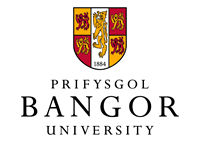Applications are invited for a full-time three-year PhD studentship on the "Neural basis of sequence planning in motor coordination disorders" funded by the Academy of Medical Sciences Springboard Award and the School of Psychology at Bangor University. The studentship will be undertaken under the supervision of Dr Katja Kornysheva, Principal Investigator of the “Skilled Action Memory” laboratory and Lecturer at the School of Psychology, Bangor University and the Bangor Imaging Unit.
Location: Bangor University, Wales
Closing date for applications: Monday, 10th May 2021
Hours: Full-time, commencing between September and October 2021 depending on suitability.
Project: The goal of the project is to uncover the neural mechanisms underlying motor planning in dyspraxia/developmental coordination disorder (DCD) and provide entry points for new interventions focussed on motor planning. Disorders of motor coordination such as dyspraxia/DCD affect the learning and control of skilled multi-movement sequences, as opposed to single movements. Unfortunately, until today, our basic understanding of the neural etiology of DCD remains limited. The main goal of this project is to utilise a novel approach pioneered in the Skilled Action Memory lab that allows a behavioural and neural ‘readout’ of the organisation of sequential movements before sequence execution takes place. We will employ behavioural testing and state-of-the-art pattern decoding of neurophysiological and neuroimaging signals to reveal the neural mechanisms underlying motor sequence planning in individuals with and without DCD. This project aims to prepare the ground for new occupational and non-invasive brain-computer-interface based interventions targeting the neural organisation of movements prior to execution.
Study environment: The student will be a member of the School's thriving and collaborative Sensorimotor research group and the Bangor Imaging Group, which meet regularly to present and discuss planned and on-going projects as well as important developments in the field. Bangor's School of Psychology was established in 1963 and now has one of the largest student cohorts in the UK and a cosmopolitan feel due to the presence of staff and students from over 20 countries. It has consistently performed exceptionally well in the UK's annual National Student Survey and is currently ranked in the top 20 in the 2014 REF. Bangor is a friendly and affordable university town, with good transport links, located in one of the most beautiful parts of the UK, situated between the picturesque peaks and valleys of Snowdonia National Park and the golden beaches of the Isle of Anglesey.
General information: PhD students are expected to contribute to teaching in the department. The initial appointment for the position will be for a period of one year, with an extension of 2 years after positive evaluation of capabilities and compatibility. The appointment must lead to the completion of a PhD thesis.
Applicant specification:
Required:
· a first or upper second-class undergraduate degree in neuroscience, experimental psychology, cognitive science, sports science, or a related degree
· a relevant Masters qualification, or an undergraduate degree with significant research experience (e.g. student assistant in a laboratory).
· experience with programming and data analysis (Matlab, Python or similar)
· evidence of strong scientific writing and communication skills
· evidence of excellent organizational skills
Desired:
· experience with human neuroscience techniques (fMRI and/or EEG/MEG)
· advanced programming skills (e.g. Matlab, Python or similar)
· be highly motivated to acquire and further develop state-of-the-art neuroimaging analyses
· enjoy working in a collaborative research environment
Further information: Please visit the "Skilled Action Memory" laboratory website for more information on the lab, as well as links to publications. Informal enquiries should be directed to Dr Katja Kornysheva.
Apply Now: Before applying, feel free to contact Dr Katja Kornysheva to discuss the PhD position. All applications are to be submitted via the Bangor’s online system here: https://apps.bangor.ac.uk/applicant/
The application must include:
1.) a current CV
2.) a 1-2 page cover letter explaining your motivation to apply for this PhD position (this should also include a description of how you meet the required and desired applicant specification)
3.) 2 academic references
4.) if relevant, proof of English Language Competency (7.0 IELTS minimum).
General enquiries: For general advice about how to apply and eligibility please contact [Email Address Removed] and/or visit the Bangor Doctoral School website.

 Continue with Facebook
Continue with Facebook



